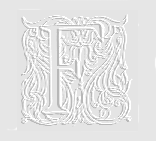October 26, 2005
F is for Eugene Field
In my opinion, Robert Frost is one of the great voices of America. Some of his lines have entered the vernacular: "Home is where, when you have to go there, they have to take you in," and "But I have promises to keep / And miles to go before I sleep", for instance. I do love many of Frost's poems, and one of my great regrets is that I didn't know The Master Speed, whose final couple is "Life is only life forevermore / Together, wing to wing and oar to oar" before my wedding.
But nearly everyone's familiar with Frost; if you're not, his poetry is modern enough to be in modern English, but not so modern as to be hard to understand, and it's easily accessible online. Instead, I want to write about a lesser known (if lesser-skilled) poet.
 is for Eugene Field.
is for Eugene Field.
I first met Field in an old anthology my parents had. (How many anthologies are there called "Best-Loved Poems"? This was one of them.) I think it had the usual bits of people like Milton and Keats, but when my age was still in single digits, those were too abstract and boring for me (actually, some still are). Instead, I'd reread Poe's Annabel Lee and the funny ones, like Riley's Little Orphant Annie and Eugene Field'stale of an epic struggle:
The DuelThe gingham dog and the calico cat
Side by side on the table sat;
'T was half-past twelve, and (what do you think!)
Nor one nor t' other had slept a wink!
The old Dutch clock and the Chinese plate
Appeared to know as sure as fate
There was going to be a terrible spat.
(I was n't there; I simply state
What was told to me by the Chinese plate!)The gingham dog went "Bow-wow-wow!"
And the calico cat replied "Mee-ow!"
The air was littered, an hour or so,
With bits of gingham and calico,
While the old Dutch clock in the chimney-place
Up with its hands before its face,
For it always dreaded a family row!
(Now mind: I 'm only telling you
What the old Dutch clock declares is true!)The Chinese plate looked very blue,
And wailed, "Oh, dear! what shall we do!"
But the gingham dog and the calico cat
Wallowed this way and tumbled that,
Employing every tooth and claw
In the awfullest way you ever saw---
And, oh! how the gingham and calico flew!
(Don't fancy I exaggerate---
I got my news from the Chinese plate!)Next morning, where the two had sat
They found no trace of dog or cat;
And some folks think unto this day
That burglars stole that pair away!
But the truth about the cat and pup
Is this: they ate each other up!
Now what do you really think of that!
(The old Dutch clock it told me so,
And that is how I came to know.)
It's not surprising I liked him; he was nicknamed "The Children's Poet", and a lot of his pieces are for, about, or spoken by children. Field, who lived from 1850-1895, also wrote some typically sappy Victorian lyrics, but the pieces I most enjoy are the children's and the vernacular ones. They may be doggerel, but they're fun, and there are some characters worth knowing in them. He wrote Western stories with titles like Casey's Table d'Hôte and The Conversazzhyony and first person stories like Jest 'Fore Christmas, which starts:
Father calls me William, sister calls me Will,
Mother calls me Willie, but the fellers call me Bill!
Mighty glad I ain't a girl---ruther be a boy,
Without them sashes, curls, an' things that 's worn by Fauntleroy!
Love to chawnk green apples an' go swimmin' in the lake---
Hate to take the castor-ile they give for bellyache!
'Most all the time, the whole year round, there ain't no flies on me,
But jest 'fore Christmas I 'm as good as I kin be!
There are also some sweet and not overwrought love poems to his wife and family, but even better are those to his books, like this one I came across while researching this post:
AmicitiisThough care and strife
Elsewhere be rife,
Upon my word I do not heed 'em;
In bed I lie
With books hard by,
And with increasing zest I read 'emPropped up in bed,
So much I 've read
Of musty tomes that I 've a headful
Of tales and rhymes
Of ancient times,
Which, wife declares, are "simply dreadful!"They give me joy
Without alloy;
And is n't that what books are made for?
And yet---and yet---
(Ah, vain regret!)
I would to God they all were paid for!
It goes on for several more verses. If you sympathize with his bibliomania enough to want to read the rest, or if you want to read some of Field's other work, there's a good selection here.